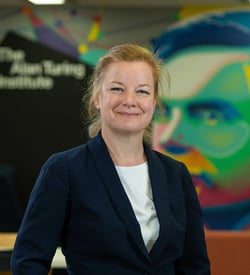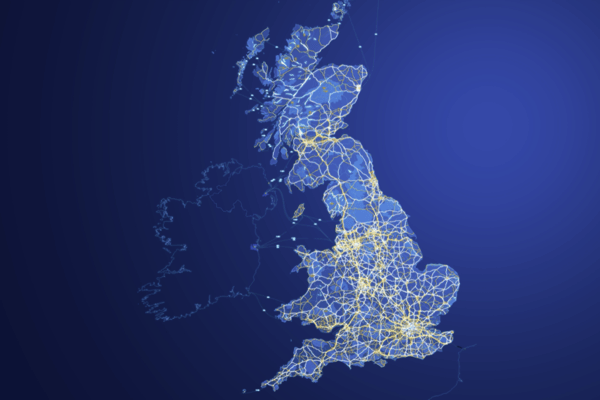New AI prototype tests scope for better land-use decisions
The Geospatial Commission is partnering with The Alan Turing Institute to explore the role that AI can play in long-term decisions about how to use land.
Since the partnership's inception in 2022, a prototype tool has been developed that leverages data science and AI to visualise different future scenarios for land use in collaboration with Newcastle City Council.
National satellite data and vision foundation models for improved accuracy and analysis via AI are being incorporated into the new prototype. A large language model approach will also simplify the tool for non-technical users ahead of its introduction to the public later this spring.
Jean Innes, Chief Executive Officer of The Alan Turing Institute, said:
“The way we use land will be more crucial than ever in the years ahead as the UK targets economic growth and prosperity whilst ensuring we protect the environment and adapt to climate change.”
“It is exciting to see the partnership between the Geospatial Commission and The Turing develop, augmenting current scenario modelling tools with new geospatial AI capability, applying satellite data and large language model technology to help more cities and regions make effective decisions about land use.”
Viscount Camrose, Minister for Artificial Intelligence also highlighted the need for this technology to address our 'limited supply of land’ and ‘need for new housing’, with climate change and food security mounting the pressure on domestic land use.
The Minister for AI visited The Turing Institute to explore the application of geospatial AI to enhance land use decision making, where the AI prototype demonstrated potential to support local authority planners and unlock opportunities for multifunctional land use. He stated:
“By harnessing innovative technologies like AI, we can support more effective long-term decisions about our land and ensure we are maximising its use and so I welcome this ongoing collaboration between the Geospatial Commission and The Alan Turing Institute.”
The government has already invested more than £3.5 billion in AI over the course of the last decade to help realise the technology’s transformative potential across the economy. This includes the Chancellor recently announcing a doubling of investment in The Turing as part of the Spring Budget. The £100 million package over five-years will build on The Turing’s work to-date to help address national and international challenges in areas such as health, the environment and sustainability alongside defence and security.This partnership is an important component of the Geospatial Commission’s Land Use Programme, which is exploring how spatial data and analysis can improve our understanding of how effective land use can balance multiple demands and deliver national policy priorities.








